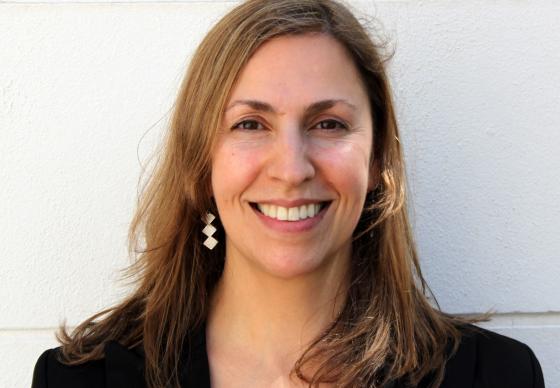Two thoughts at once - pilot project on both gender equality and gender perspectives
While the idea to establish a gender equality network within the European Research Area (ERA) emerged back in 2004, GENDER-NET was finally launched in 2013 as the first ERA-NET on the topic of gender equality and the gender dimension in research.
GENDER-NET is a European Commission initiative to gather all positive forces to improve gender equality in research and higher education and to incorporate gender perspectives in research and educational programmes. The project was launched in 2013 and will conclude in 2016.
“It’s a relatively small project which started up with 12 partners and three observers, but there is still room to grow. Now we’ve added two new partners and have a total of 10 observers,” says Anne Pépin, the project coordinator for GENDER-NET and head of the Mission for the Place of Women under the National Center for Scientific Research in France.
An ERA-NET is a research network within the European Research Area. In GENDER-NET, European countries work together to acquire more knowledge and develop more measures that promote gender equality and integration of the gender dimension in research content.
“We must remember that this is the first such EU-funded initiative addressing both gender equality in research institutions and gender perspectives in research content at the policy level. In particular, these two dimensions have gained more importance in Horizon 2020 than they had in the previous framework programme for research,” she explains.
Twelve countries are now partners in the project, including national ministries or state secretariats in five countries, seven national research councils and two organizations at the national level. More observers have also joined, countries as well as organizations. Austria and Germany, NordForsk and the KIF Committee are among the most recent observers to come on board.
“Quite simply, GENDER-NET is a transnational pilot project for policy development in the area of gender perspectives and gender equality in research,” says Pépin.
GENDER-NET will have a transnational impact
The first four reports have been launched, and more are in the works. According to Pépin, GENDER-NET will generate many recommendations.
“A clear recommendation from GENDER-NET is to establish national programmes to promote equality between the genders and gender perspectives in research. But our most important task is to develop joint projects.”
“For instance, we are discussing the possibility of establishing a European gender equality award and developing targeted gender equality trainings,” says Pépin.
Three of the reports focus on gender equality in research. One of them analyses a sample of existing national measures for gender equality. Another addresses measures at selected universities and research institutions, and looks at how these correspond with national policy or national programmes. The third report analyses gender equality awards and other motivational measures at national and European levels.
The fourth report shows the results of GENDER-NET’s survey of measures used by a broad sample of national institutions for integrating gender perspectives in research.
In the first three reports, GENDER-NET analyses effective measures in the following areas:
- Decision-making structures and procedures at regional and national levels;
- Anchoring gender equality issues at leadership level;
- Recruitment, retention and advancement of women researchers;
- Improving the working environment, work-life balance and dual careers;
- Facilitating incoming/outgoing mobility for women researchers.
Gender perspectives and gender equality
“We found many more measures that address gender equality than measures for integrating gender as a perspective in the research itself. Integration of sex and gender analysis in research content is less developed in Europe, and less well understood than the equality measures, yet it is an ERA priority and important for us.”
“In GENDER-NET, the efforts to integrate gender perspectives in research and the work to advance gender equality are performed in parallel,” says Pépin.
Support and leadership from the EU is important for Pépin:
“I’m very glad that the EU, through Horizon 2020, is now making a major effort to move forward on integrating gender perspectives in research. This could be significant for many fields – health and biology, as well as transport, climate, environment and engineering.”
While only one of the first four reports from GENDER-NET is about gender perspectives in research, more reports from this part of the project will be published in the future.
See an overview of the reports
“Must benefit universities and university colleges”
Pépin says that GENDER-NET plans to cast a wide net. They want to reach more than just the contributors and members in the project – the EU, partner countries, research councils and observers – and will reach out to universities and research councils throughout Europe via organizations such as the European University Association and Science Europe.
“Partners in GENDER-NET have a programme on gender equality and/or gender at the national level. The exceptions are Belgium, Cyprus and Slovenia, but these three countries plan to launch a national project during the three years that GENDER-NET runs. All the partner countries in GENDER-NET must deliver,” says Pépin.
NordForsk, one of the observers in GENDER-NET, established last year a programme on gender in the Nordic research and innovation area and a Nordic She Figures, statistics on gender balance in research at the Nordic level.
Read the funding announcement for the programme “Gender in the Nordic Research and Innovation Area” with an application deadline of 27 April 2016.
What does GENDER-NET want to achieve?
Pépin thinks it’s too early to know what the final results from GENDER-NET will be, but the objectives are clear:
The four main objectives of GENDER-NET are:
- Engage the EU member states in modernizing their institutions through structural change by implementing gender equality plans or equivalent initiatives, improving the recruitment and career paths of female scientists, and enhancing the working conditions and research productivity of both women and men;
- Foster scientific excellence, new knowledge and technological innovation by improving the integration of sex and gender analysis into all phases of basic and applied research;
- Monitor and report on progress by using common indicators to assess achievements;
- Reduce fragmentation across the ERA by helping reach a critical mass of research organizations and universities across Europe and realise the ERA’s Priority 4: gender equality and gender mainstreaming in research.
A closing dissemination policy conference for GENDER-NET will be held in Paris in September 2016, which will be a part of the 9th European Conference on Gender Equality in Higher Education (and Research).
“Then we will know more about the status of gender equality and gender perspectives in research within and outside Europe, whether GENDER-NET has had the impact we hoped for, and what will happen in the future,” concludes Pépin.
Translated by Connie Stultz.
GENDER-NET is:
- a policy initiative funded by the European Commission and launched under the programme “Science in Society” in the previous framework programme for research, FP7. Horizon 2020 is the EU’s research programme from 2014 to 2020.
- part of the ERA-NET scheme. An ERA-NET is an instrument in which the European Commission provides funding for research networks.
- a policy network whose task is to develop, coordinate and share experience and knowledge on both gender equality and gender perspectives in research.
The Research Council of Norway and Kilden kjønnsforskning.no are partners in the project, while the Committee for Gender Balance and Diversity in Research (the KIF Committee) is an observer.
The first four reports from GENDER-NET were published in November 2015. Three of the reports deal with gender equality and one focuses on the gender dimension in research content.
These four are:
- D2.5: Analysis report on national plans and initiatives promoting gender equality and structural change
- D2.6: Analysis report on plans and initiatives in selected research institutions aiming to stimulate gender equality and enact structural change
- D2.7: Analysis report on award schemes, gender equality and structural change
- D3.9: Compendium of national initiatives on the integration of the gender dimension in research contents (including country and institution facts sheets)
Norway is responsible for the report on gender equality at the national level (Analysis report on existing plans and initiatives at national level), which discusses programmes, strategies and other effective initiatives at the national level. The report was written by Kilden kjønnsforskning.no on commission from the Research Council.
More reports will soon be published, including a synthesis report of the three reports on gender equality (D2.5, D2.6 and D2.7).
Anne Pépin is the project coordinator for GENDER-NET and head of the Mission for the Place of Women under the National Center for Scientific Research in France.

